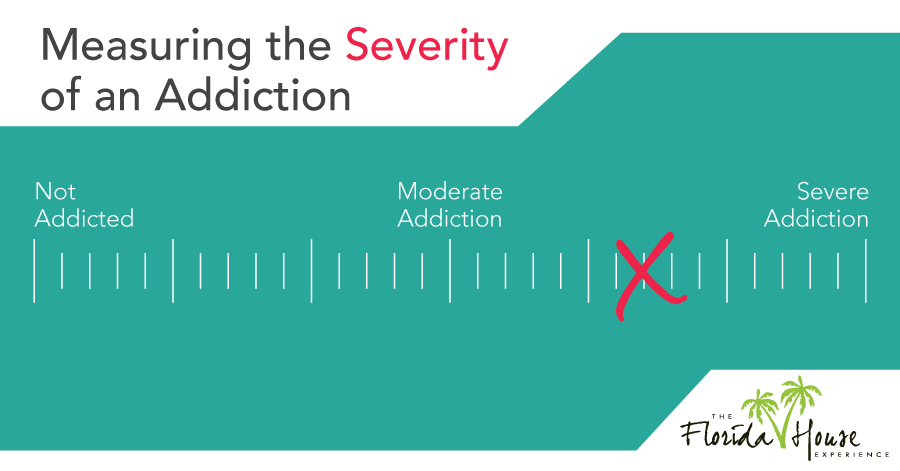
Addiction is a disease, and as with many other diseases like diabetes and cancer, the severity of addiction varies widely depending on a number of factors that substance abuse experts can measure using the addiction severity index, or ASI.
Just like how some people with diabetes can manage their condition by making minor lifestyle changes (such as improving their diet and exercising more often), while others with the same disease suffer from serious complications such as vision loss, amputations, and even death, the same is true with substance abuse.
Different ‘Drug of Choice’ – Different Addiction Severity?
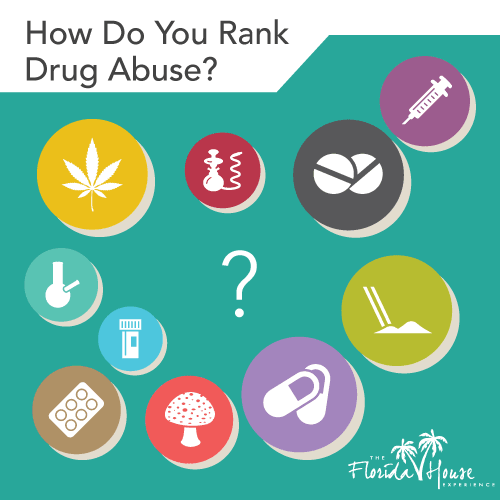
As a society, we tend to judge the severity of an addiction mostly on the substance, a.k.a. the “drug of choice”. There are some addictions that are seen as being relatively harmless, such as an addiction to video games, coffee, or even binge eating, while other addictions are perceived as being far more serious, such as opioid addiction or IV drug use.
Unfortunately, the general perception that some addictions have significantly more adverse impacts on the addict than other ‘less serious’ addictions can keep people from seeking treatment for their addictive behaviors. It’s common for someone who is a high-functioning alcoholic to have difficulty seeing themselves as having a substance abuse problem, while someone who is injecting heroin tends to readily agree that they have an addiction to drugs.
Treatment approaches also differ based on the ‘drug of choice’ for obvious reasons. While all forms of addiction cause an imbalance in one’s life, some addictions are actually life-threatening.
Measuring The Real Impact of Addiction
Understanding where you fall on the addiction scale is also an important part of knowing when it’s time to seek help for your substance abuse issues.
It can be tough to recognize when you have become addicted, particularly since many addictions develop slowly over the course of many months, years, or even decades. After all, how do you know when your recreational drinking habit has crossed the line into alcoholism? Or when your marijuana use has started to have an unwanted impact on your career, health, or finances? What about binge eating, using prescription medications, or playing video games?
What Is The Addiction Severity Index?
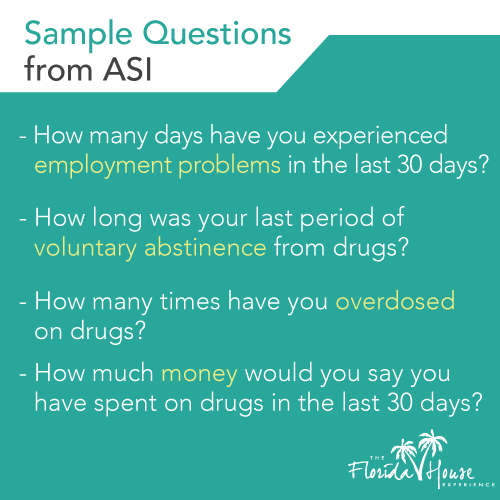
The addiction severity index, or ASI, is an in-depth, interview-based assessment tool that provides a ‘big picture’ of how a person is functioning in seven areas of their life.
During the addiction severity interview, two time periods are discussed: the past 30 days, and the entire lifetime of the interviewee. The interview relies solely on self-reporting. There is no input from family members, physicians, parole officers, or anyone else. That means the more honest a person is during the ASI interview, the more accurate the outcome of the assessment is.
It’s important to understand that the addictivity scale isn’t a test; there are no right or wrong answers, and you can’t ‘fail’. It’s about helping you and your treatment team develop a comprehensive, accurate picture of how you are doing right now, and the role that substance abuse is having in your health, career, relationships, finances, and mental wellness.
What Does The Addiction Severity Index Measure?
During an ASI interview, you’ll be asked detailed questions about six different areas of your life, including:
- Any medical/health issues you currently have or have had in the past, that are related to your addiction
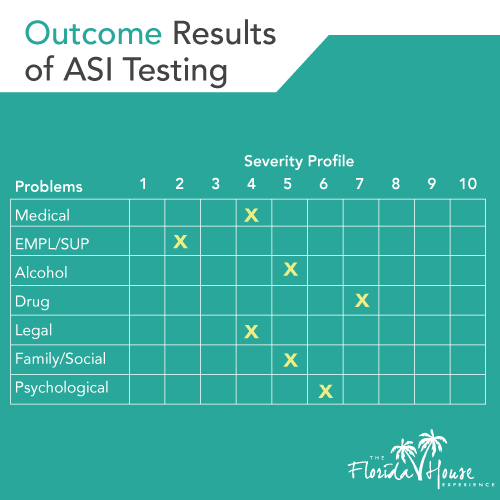 What your current employment status is, and whether or not you’ve been unemployed/underemployed in the past
What your current employment status is, and whether or not you’ve been unemployed/underemployed in the past- How often you drink alcohol or use drugs right now, and what your past substance use habits were like
- Whether or not you are currently dealing with legal issues related to your substance use, and if you’ve had legal problems in the past linked to drug or alcohol use
- What your family and interpersonal relationships are like now, and what your past relationships have been like
- Are you currently experiencing any mental health issues such as anxiety, depression, or paranoid thoughts, and have you had mental health problems in the past
The interview takes about an hour to complete, and it’s usually conducted as part of the pre-admission process to an addiction treatment center or outpatient program. Once the ASI has been finished, the treatment team uses the information to develop a personalized treatment plan and goals based on the issues identified during the interview.
The ASI also gives addicts a ‘baseline’ measurement of where they are at when they enter treatment. It is a reference point that can be used throughout the treatment program and recovery to assess the effectiveness of certain therapies.
Limitations of the Addiction Scale
While the ASI has helped to standardize how clinicians measure addiction, this tool isn’t designed to assess addiction in teens (adolescents) because young adults simply haven’t had the life experience that’s needed to respond to many of the questions on the ASI survey related to finances, interpersonal relationships, and employment status.
The ASI also can’t predict which people are more likely to develop a substance abuse issue, given that there are a number of complex, highly personal factors that contribute to whether or not you have a propensity for developing an addiction, a.k.a. ‘an addictive personality.’
Wondering Where You Rank on the Addiction Severity Index?
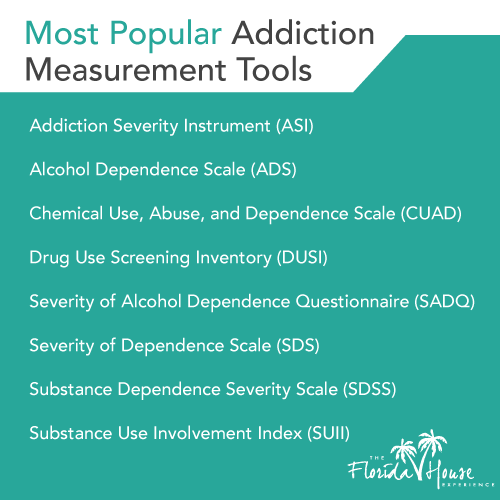
If using drugs, alcohol, or both are having a negative impact on your life, it’s time to take a hard look at your addiction severity.
Here at FHE Health, we use cutting-edge tools when measuring addiction and assessing addiction severity. Our team of highly skilled, compassionate addiction and mental health experts gather valuable information using the addiction severity index to create personalized, science-based treatment plans.
When you have questions about where you fall on the addiction scale, call us here at FHE. We’re available to take your call 24 hours a day, 7 days a week at (833) 596-3502.






